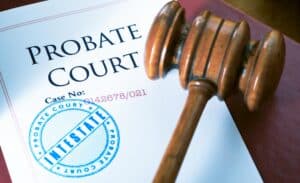Once you pass on, what happens to your estate? This depends upon whether or not you have a Will, or whether you have established trusts into which you have placed your assets.
- If you do have a Will, a petition must be filed with the Surrogate’s Court to admit your will to probate. The probate proceeding includes proving your Will is valid; approving and appointing the Executor; identifying, inventorying and appraising your property; paying debts and taxes; and distributing the remaining assets in accordance with your wishes. Probate is a public proceeding, and all of your potential heirs, whether or not named in your Will, must be given notice and an opportunity to be heard or to object.
- If you do not have a Will or trust, or named beneficiaries on any accounts, there are laws in each state to determine how your assets will be distributed, as well as to decide other issues such as who might be named guardian over your minor children. These are called intestacy laws, because you have died intestate (without a Will). The process of dealing with your property and other personal issues if you have died intestate is called “Estate Administration” and the estate is said to be “In Administration.”
- If the assets that remain in your name once you pass away are valued at less than $50,000 in New York State, your estate goes through a Small Estate Proceeding.
- If you have established a trust or trusts, the property in those trusts is no longer yours. It is distributed or managed according to the terms of the trust and does not require a court proceeding.
Click here for more on Probate Proceeding, Administration Proceeding, or Small Estate Proceeding.

visit our key practice areas





